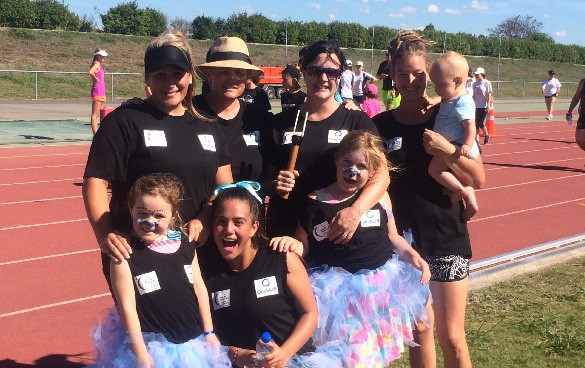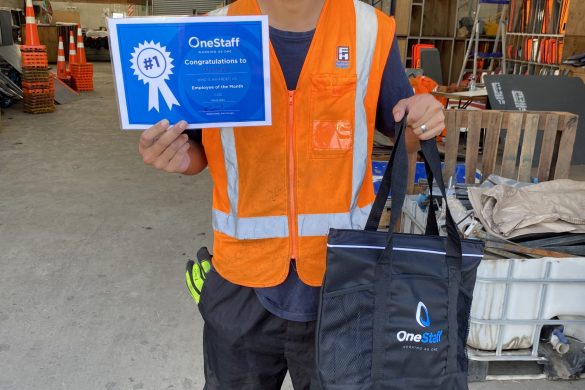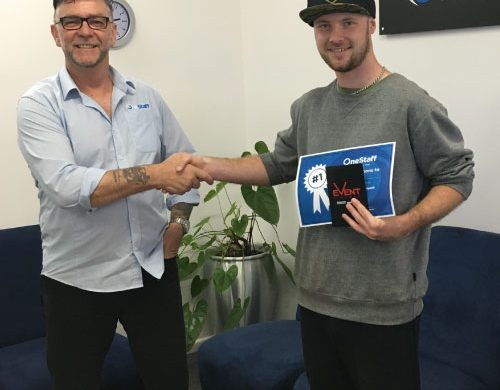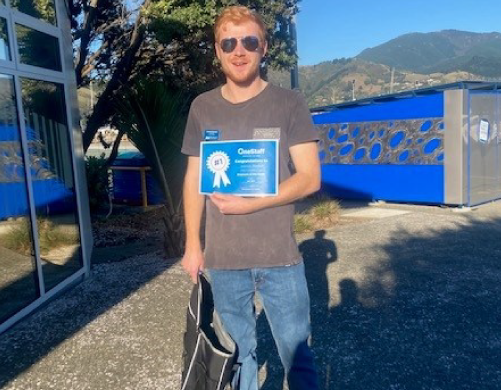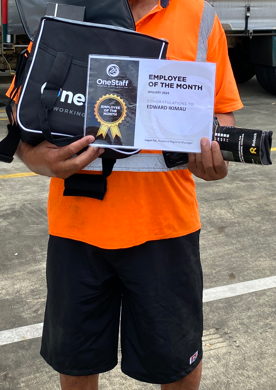A couple of months ago, I was the proud coach of a hockey team that won their first National Senior Championship in 12 years. It was a fantastic achievement to be crowned as National Champions in Wellington, and to take home the Newman Trophy after a long time between drinks for the Waikato side.
But while it was a great feeling to see your efforts rewarded, I also took away a few lessons in leadership that are fit for any environment – not just sport.
Hard Work Beats Talent Every Time
It might sound overly simple, but the key ingredient for a great team is working together. By that I don’t just mean helping each other out with tasks when necessary, but truly working for each other. Last year our focus was on skills; picking the most skilful players, going into games with an emphasis on tactics. This year we focused on ourselves rather than the opposition. We picked the strongest characters, the hardest working players, and during selection and training our goal was to find who would go the extra mile. The thing with hard workers is that, when the going gets tough, they work harder, instead of turning on each other. Furthermore, if somebody isn’t pulling their weight or is going against the grain, they’re quick to nip it in the bud.
Naturally these are all great attributes to have in a workplace, but some workplaces function differently to others. In Recruitment for example, while we work as a team, as an industry it’s still very individually driven; with individual targets and goals. In this kind of environment, it can be easy to focus on your own desk, and to turn on each other when things go sour. However, this can be catastrophic to outcomes, which is why building a strong culture is so important.
Culture is Key
Even if you’ve got a team of people who are happy to work hard, you’re not going to get the best out of them if you don’t have a culture that underpins that, and rewards those behaviours. A great culture is the result of all the other components being in place; hard working people, a positive work environment, and supportive management structures.
In the build up to the tournament, our core focus was on creating a culture that would get the best out of the people we picked. As mentioned earlier, we wanted our team to be about relentless hard work as much as they were about skill, so giving them a vision to work towards was crucial. We decided to put a lot of responsibility at the feet of the team, letting them set their own rules and goals, and instilling a sense accountability. This created an environment where everybody was working towards the same goal and giving 110% towards it, and wasn’t letting up because nobody wanted to be the person to ruin something for everyone – especially when they’ve been part of building it themselves.
Ultimately, culture isn’t something you can control. It’s something that needs to be allowed to develop organically, within your team. As a leader the best you can give is set a goal and lend a guiding hand – ensuring that goals don’t feel out of reach while continuing to provide support and encouragement.
Providing Leadership
While some things need to be left to your team in order to get the most out of them, you still have a role to play as a leader. For me as a coach, it was critical to get buy-in from everyone in the team into everything we did. If the players weren’t motivated by it, they wouldn’t work for it. This meant paying careful attention to the dynamics within the team and being diligent in making the right decisions. For example, this year our senior playing group had input into tactics, with a representative from each position deciding how they want to go about their jobs. For this to work, picking the right people is crucial; your senior playing group needs to be likeable, smart, and lead by example, or else the rest of the team will not want to follow them.
Motivation is also an issue that rears its head when it comes to the work itself. In my case, we were never going to achieve anything if we continued to not take the competition seriously, as had been the case in the preceding years. This kind of thinking creates a cycle: don’t take it seriously because we don’t win, don’t win because we don’t take it seriously. This meant that many players, especially the older ones who have played in it before, needed to change the way they approached the tournament to see it as winnable. We put faith in our younger players to lead the way and they repaid us with their performances, which increased confidence amongst the group. It’s the same in the office. How can you expect someone to put in their best effort when they don’t care about the work that they’re doing? As a leader, it’s your job to show them why what they’re doing is important or to find out what motivates them and ensure that’s part of their job.
Overcoming Challenges
While there were challenges, we could never have expected everything to turn out this well. We had a feeling that this way of coaching would get results, but to go on and win the tournament was something we wouldn’t have imagined at the start. Seeing the team beat teams that had previously dominated us, and being so mentally tough that, no matter what, we always got the result, is something I’m really proud of. It’s evidence that leadership isn’t about setting the right rules or having the most experience, but it’s about having the right attitude.
The feedback I got from the players was that I was the most positive coach they’ve had, which is different to how they felt they were usually treated. Yet, for me, it was the easiest coaching job I’ve ever had. The players took on so much responsibility and made their own success. It’s the same in the workplace. As a leader, you need to keep in mind that you can’t take credit for other people’s success. Your credit is the fact that you’re fostering a workplace that means other people can succeed, and that in itself is more than enough.
Congratulations to Matt for replicating his leadership success in the workplace, picking up the 2017 Manager of the Year award at the OneStaff National Conference this past weekend! Well done, Matt.



